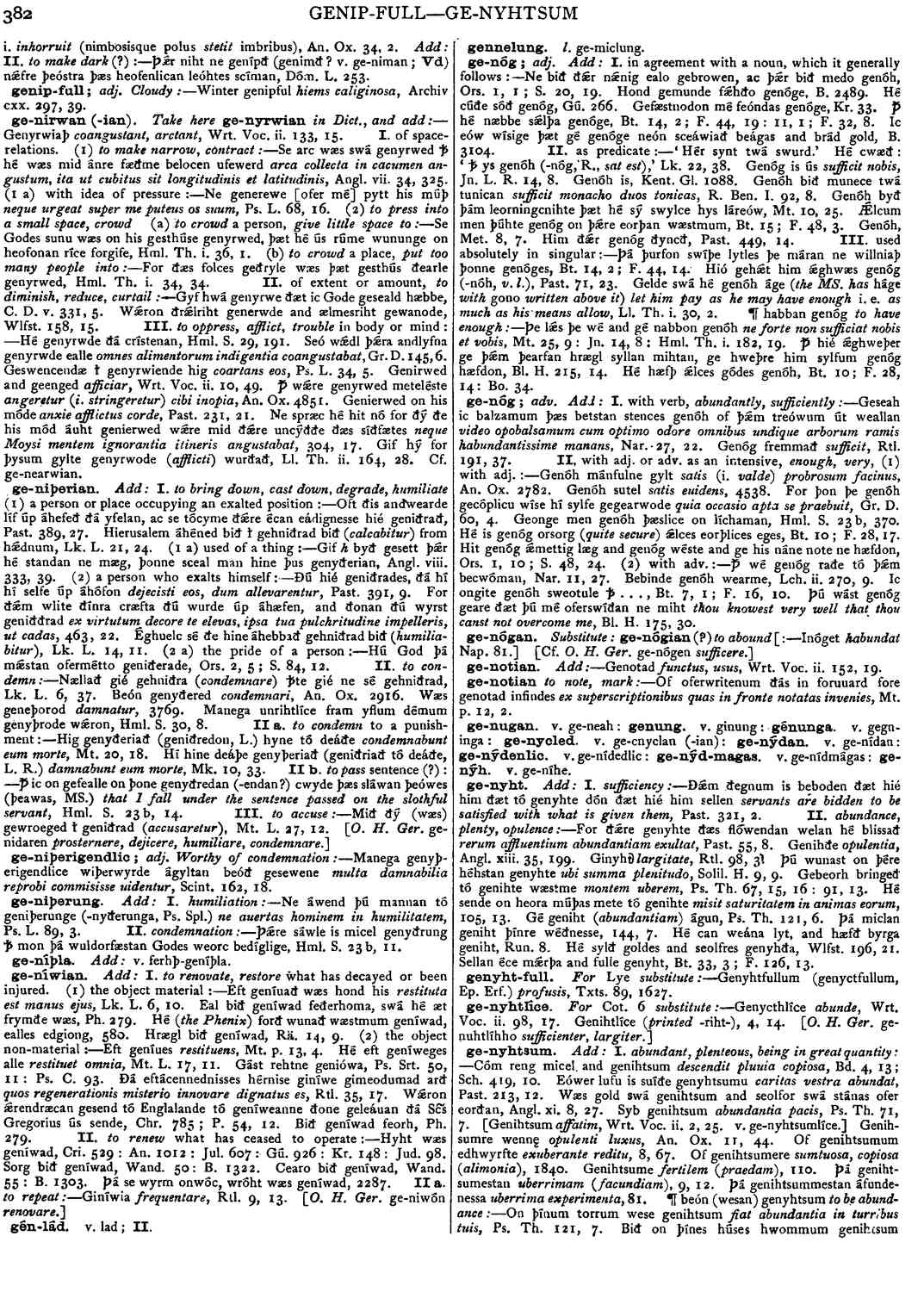ge-niþerian
- verb [ weak ]
-
Oft ðis andwearde líf úp áhefeð ðá yfelan, ac se tócyme ðǽre écan eádignesse hié geniðrað,
- Past. 389, 27.
-
Hierusalem áhéned bið ł gehniðrad bið (calcabitur) from hǽdnum, Lk. L. 21, 24. (1 a) used of a thing :-- Gif
h
byð gesett þǽr hé standan ne mæg, þonne sceal man hine þus genyðerian,- Angl. viii. 333, 39.
-
Ðú hié geniðrades, ðá hí hí selfe úp áhófon
dejecisti eos, dum allevarentur,
- Past. 391, 9.
-
For ðǽm wlite ðínra cræfta ðú wurde úp áhæfen, and ðonan ðú wyrst geniððrad
ex virtutum decore te elevas, ipsa tua pulchritudine impelleris, ut cadas,
- 463, 22.
-
Éghuelc sé ðe hine áhebbað gehniðrad bið (
humiliabitur
),- Lk. L. 14, 11. (2 a)
-
Nællað gié gehniðra (
condemnare
) ꝥte gié ne sé gehniðrad,- Lk. L. 6, 37.
-
Beón genyðered
condemnari,
- An. Ox. 2916.
-
Wæs geneþorod
damnatur,
3769. -
Manega unrihtlíce fram yflum démum genyþrode wǽron, Hml. S. 30, 8. II a. to condemn to a punishment :-- Hig genyðeriað (geniðredon, L.) hyne tó deáðe
condemnabunt eum morte,
- Mt. 20, 18.
-
Hí hine deáþe genyþeriað (geniðriað tó deáðe, L. R.) damnabunt eum morte, Mk. 10, 33. II b. to pass sentence(?) :-- Ꝥ ic on gefealle on þone genyðredan (-endan?) cwyde þæs sláwan þeówes (þeawas, MS.)
that I fall under the sentence passed on the slothful servant,
- Hml. S. 23 b, 14.
-
Mið ðý (wæs) gewroeged ł geniðrad (
accusaretur
),- Mt. L. 27, 12.
- [O. H. Ger. ge-nidaren prosternere, dejicere, humiliare, condemnare.]
Bosworth, Joseph. “ge-niþerian.” In An Anglo-Saxon Dictionary Online, edited by Thomas Northcote Toller, Christ Sean, and Ondřej Tichy. Prague: Faculty of Arts, Charles University, 2014. https://bosworthtoller.com/49069.
Checked: 0